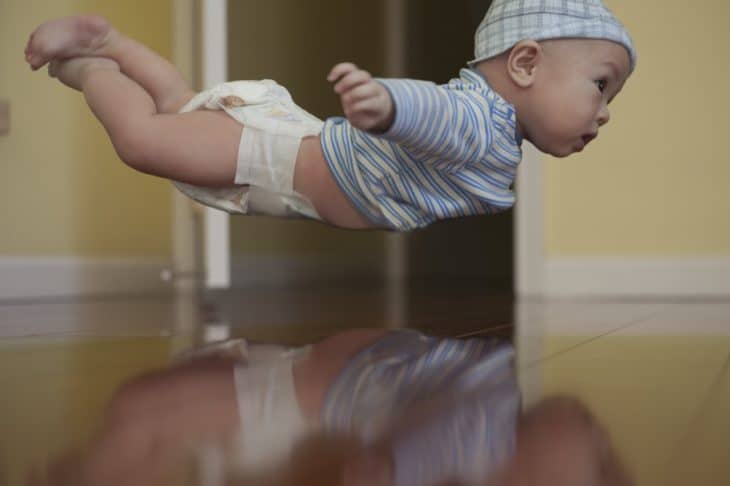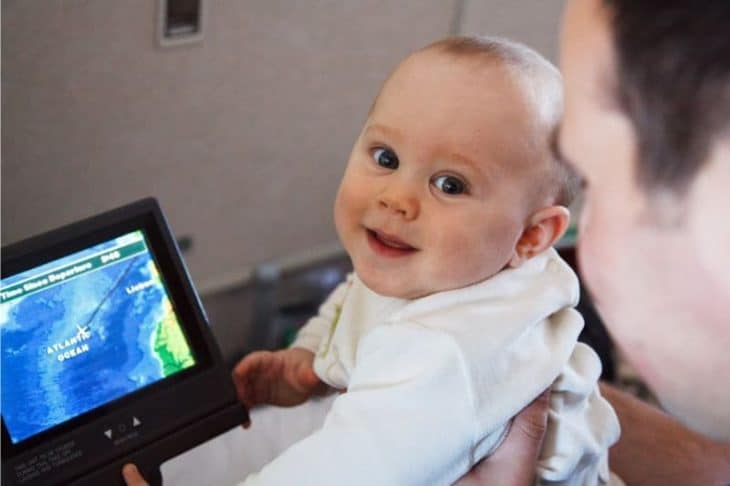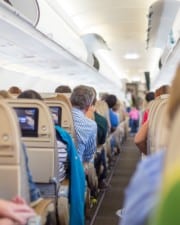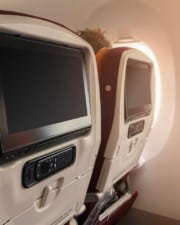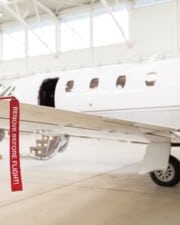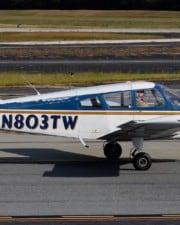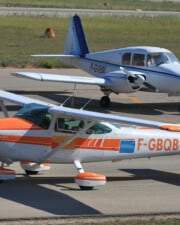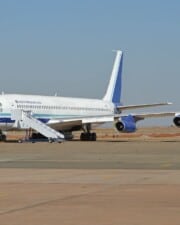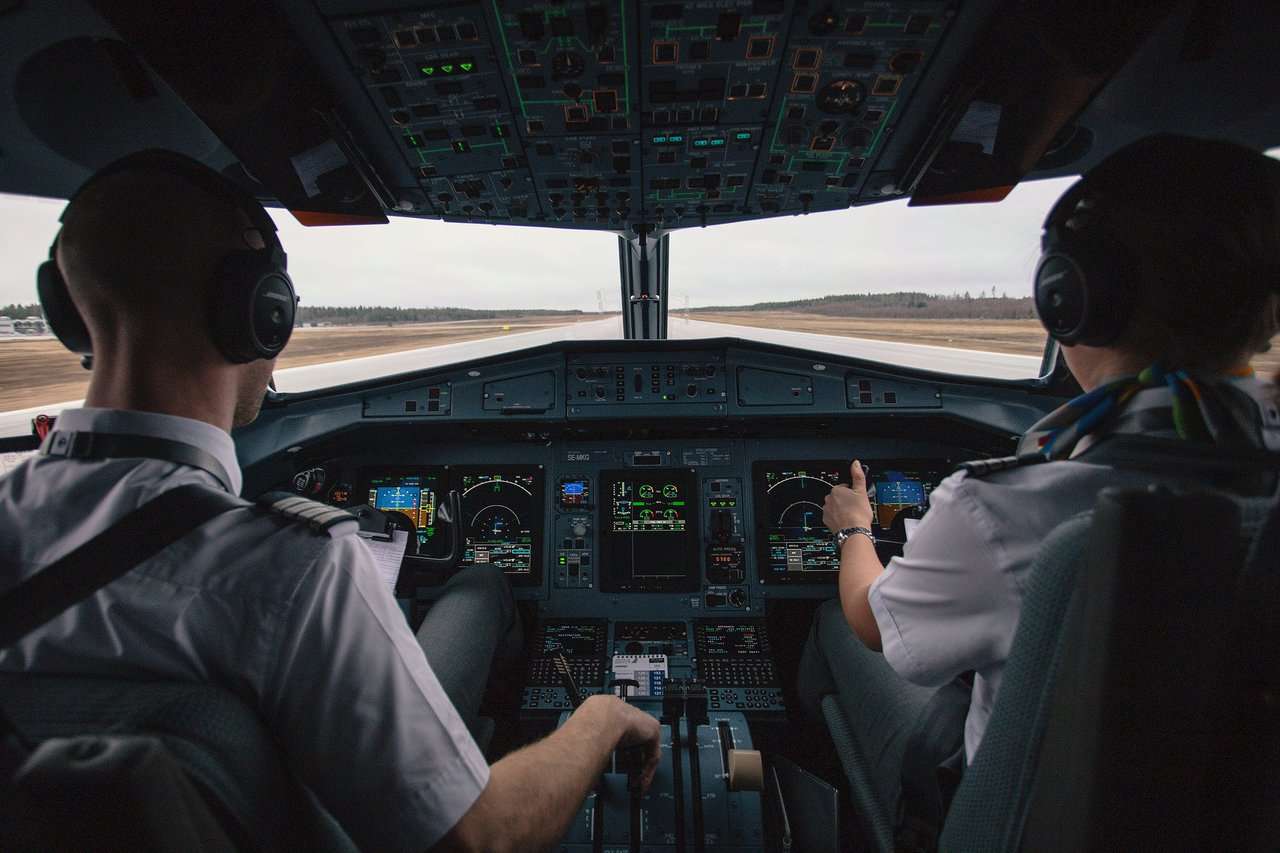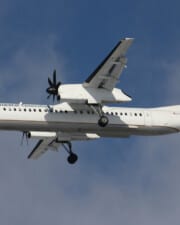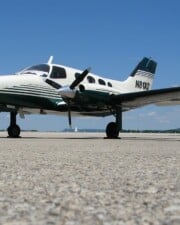As a mother, you always want to make sure you do whatever’s best for your baby. But what can or should you do when forced to choose between your baby’s health and an airline flight? How soon is it before your baby can safely fly?
Table of Contents
This is a difficult question to answer given how unpredictable and unique babies can be. Even so, assuming all is well with your baby and you want to risk it, after two weeks your baby should be up for short flights.
With that in mind, let’s take a look at this question more in-depth and determine when it’s okay to take your baby on board an airplane with you, and how to go about doing so the safe way.
Your Baby’s Health
The first and most important factor you’ll need to consider when determining whether or not your baby can fly is, of course, their health. Your plans may be important, but your baby’s health is much more important.
On the one hand, after two weeks, your baby should be old enough to travel, but that doesn’t mean they should. As we’ll see below, flying comes with all manner of different hazards to your baby’s health.

On the other hand, everything in life carries risk. While staying at home may keep you free of many of the conditions listed below, your baby can still get sick plenty of other ways.
But before we get into the risk of illnesses, let’s first talk about what can bother your baby about flying.
Ear Pressure
One of the biggest things that looms large for parents looking to take their babies on a flight is the cabin pressure. Think about how annoying it can be for your ears to clog while flying. Now think about how painful they can be when they pop.
Now think about a poor few weeks’ old baby having to deal with all that. Their new nubile ears are too soft and fragile to deal with these changes in air pressure. While it shouldn’t damage their ears, you can understand how uncomfortable that would be for them.
Immune System
In addition to soft, fragile ears, babies also have weak immune systems. This is in part because newborn children depend on their parents for protection when they are born. Mothers’ immune systems are supposed to influence their children’s before birth.
What’s more, they depend on you to make smart choices, and that means making sure that you avoid situations where they could get sick. Airports and airplanes are notoriously germy.
While that doesn’t mean you should avoid airplanes at all costs, you’ll want to take precaution to make sure that you aren’t inadvertently subjecting your babies to germs. Wash, wash, and wash your hands some more.
Unpredictabilities
There is also the fact that babies are unpredictable, and no two babies are alike.
On the one hand, that’s part of what makes your baby an adorable ball of cuteness.
On the other hand, that’s also part of what can make flying with a baby absolute chaos.
Some babies are naturally quieter and calmer than others, and that translates to flying as well. While things such as air pressure on newborn ears is bound to bother most infants, what bothers one baby may not bother another.
Lack Of Sleep
One thing that is sure to bother your baby is not getting enough sleep; however, and unfortunately that’s another potential side effect of taking your baby on a plane. The sound and unfamiliar surroundings can keep them up and prevent them from getting the sleep they need to stay healthy.
Your Baby’s Passport
If the flight you are booking is international in nature, your baby will need a passport as well. While different times of the year can take different amounts of time in terms of processing this information, you should allow a few weeks at minimum.
If you have an emergency that requires you to take your baby out of the country immediately, talk to the appropriate personnel at the airport and State Department. Emergency cases are, by their nature, different, so a fix for you might not work for someone else, and vice versa.
With the exception of these extreme circumstances, however, your baby is better off waiting a couple months before traveling internationally with your baby anyway.
While a couple weeks is the absolute minimum, international flights are longer and, thus, a greater strain for your baby mentally and physically.
Baby Breathing and Seats
In most cases, neither of these categories should pose too much of a problem.
However, if your baby was born prematurely or otherwise has a heart and lung condition, they may be especially vulnerable to changes in cabin pressure. Tell your doctor and make sure they say it is okay for your baby to fly with their conditions.
Oftentimes, babies can just sit with their mothers. Increasingly, however, babies are being assigned special safety seats. Do some research, see what your airline does and, if necessary, ask for a safety seat upon boarding.
Mothers’ Health
It isn’t just your baby’s health at risk. As a pregnant or newborn mother, you may be especially susceptible to sickness as well. As such, you want to be especially vigilant to make sure that you don’t put yourself at risk unnecessarily.
This is especially true if you are pregnant. After all, you are responsible for your health as well as that of the embryo or fetus.
Two of the most common problems for pregnant mothers traveling by plane are blood clots and exposure to germs.
In the case of the former, an aisle seat is recommended so you can get up and stretch your legs as needed. In the case of the latter, you need to wash your hands and make sure you do everything in your power to avoid germs as much as possible.
Breast Feeding
If you are a mother who breastfeeds her children, this is one of the biggest questions you may have about the flight process. Can you breastfeed on the plane? What about bringing breast milk on the plane?
The answer is, for the most part, yes. While there are still plenty of areas of society that are still sexist against breastfeeding and mothers’ rights, the skies are becoming increasingly mother-friendly these days.
On most American, Canadian, and European airlines, you have the right to breastfeed your child. Some airlines even go the extra mile and give their mother covers or otherwise help them keep their privacy.
If someone is bothering you about you breastfeeding your child, tell a flight attendant. They will work to resolve the situation and, if necessary, remove the troublesome individual. In many cases, breastfeeding mothers and babies come first.
That said, you should always make sure to look up the airline with whom you’ll be flying to know the rules.
What About TSA?
In most cases, you have to bring liquids in a tiny bag that fits TSA regulations. Breast milk is different. On the one hand, the size regulation isn’t the same, so you won’t have to ration your breast milk. That said, breast milk is subjected to a special screening procedure.
Make sure to leave enough time between TSA checks and your flight, especially if you are bringing a baby and have breast milk that needs to get through screening.
References ▾
Related Posts
